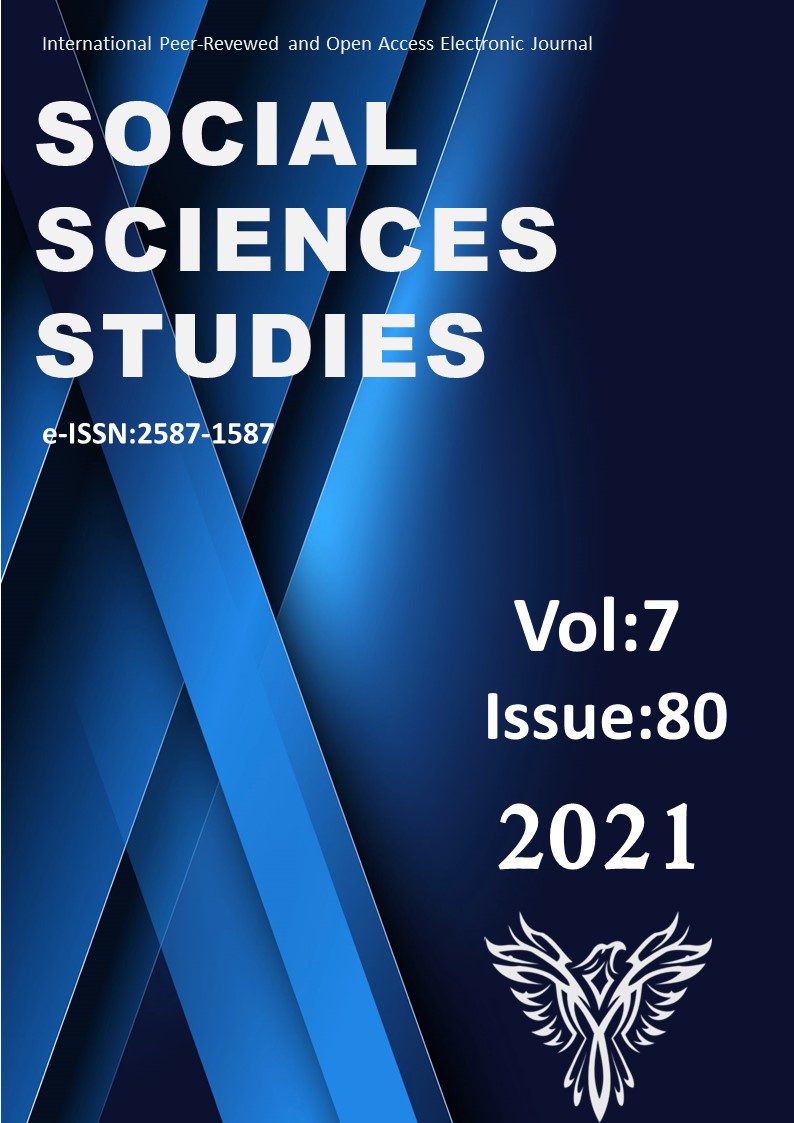Author :
Abstract
Bu çalışmanın amacı, coğrafya beşinci sınıf öğrencilerinin “ekoturizm” anahtar kavramıyla ilgili mevcut algı ve düşüncelerinin tespit edilmesidir. Çalışmanın verileri, Coğrafya Eğitimi Anabilim Dalında öğrenim gören toplam 40 öğrenciden kelime ilişkilendirme testi kullanılarak elde edilmiştir. Çalışmada nitel araştırma tekniklerinden olan durum çalışması deseni kullanılmıştır. Elde edilen veriler içerik analizi tekniği ile değerlendirilmiştir. Veriler kodlanarak birbiriyle ilişkili olan cevap kelimeler bir araya getirilmiş ve toplam yedi kategori oluşturulmuştur. Bu kategorilerdeki cevap kelimelerin özellikleri dikkate alınarak kategoriler isimlendirilmiştir. Her kategorideki cevap kelimelerin sayı ve frekans değerleri hesaplanarak tablo haline getirilmiştir. Ayrıca bu frekans tablosundan yararlanılarak bir model oluşturulmuştur. Bu kategoriler içerisinde “Ekoturizmin doğal ortam özellikleri” isimli kategori frekansı en yüksek kategori olarak ilk sırada yer almıştır. Cevap kelimelerin tekrarlanma sayısına göre İkinci sırada “Ekoturizmi tanımlama” kategorisi yer almaktadır. Frekans sayılarına göre diğer kategoriler, “Ekoturizm etkinlikleri ve etkinlik ortamları”, “Diğer turizm destinasyonları ve faaliyetleri”, “Ekoturizmin ekonomik etkileri”, “Ekoturizmi sürdürülebilir yapan biyotik faktörler” ve “Ekoturizme uygun bölgeler” şeklinde sıralanmaktadır. Sonuç olarak öğrenciler ekoturizm kavramı ve ekoturizmin genel özellikleri ile ilgili çok sayıda cevap kelime üretilmişlerdir. Bu kelimeler ve yazılan cümleler incelenerek öğrencilerin ekoturizm konusundaki bilgilerinin hangi kavramlardan oluştuğu belirlenebilmiştir. Böylece kelime ilişkilendirme testinin kavramsal yapıyı belirlemede ve kavram yanılgılarını tespit etmede etkli bir araç olarak kullanılabileceği ortaya konulmuştur.
Keywords
Abstract
The objective of this study is to determine the existing perceptions and thoughts of fifth grade geography students about the key concept of “ecotourism”. The data of the study were obtained from a total of 40 students studying in the Department of Geography Education using the word association test. The case study design which is one of the qualitative research techniques was used in the study. The obtained data were evaluated with content analysis technique. The data were coded and the related answer words were combined and a total of seven categories were created. The categories were named by taking the characteristics of the answer words in these categories into consideration. The number and frequency values of the answer words in each category were calculated and then put into a table. In addition, a model was created by using this frequency table. Among these categories, the category named as “Natural environmental characteristics of ecotourism” is the category with the highest frequency. According to the number of repetitions of the answer words, the category named as "Defining ecotourism" takes the second place. According to the frequencies, other categories are listed as; "Ecotourism activities and activity environments", "Other tourism destinations and activities", "Economic effects of ecotourism", "Biotic factors that make ecotourism sustainable" and " Regions suitable for ecotourism". As a result, the students produced lots of answer words about the concept of ecotourism and the general characteristics of ecotourism. By examining these words and written sentences, it is possible to determine which concepts the students' knowledge on ecotourism consists of. Thus, it was revealed that the word association test can be used as an effective tool in determining the conceptual structure and detecting misconceptions.





